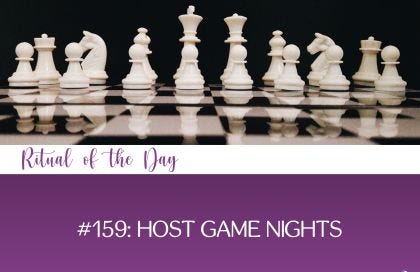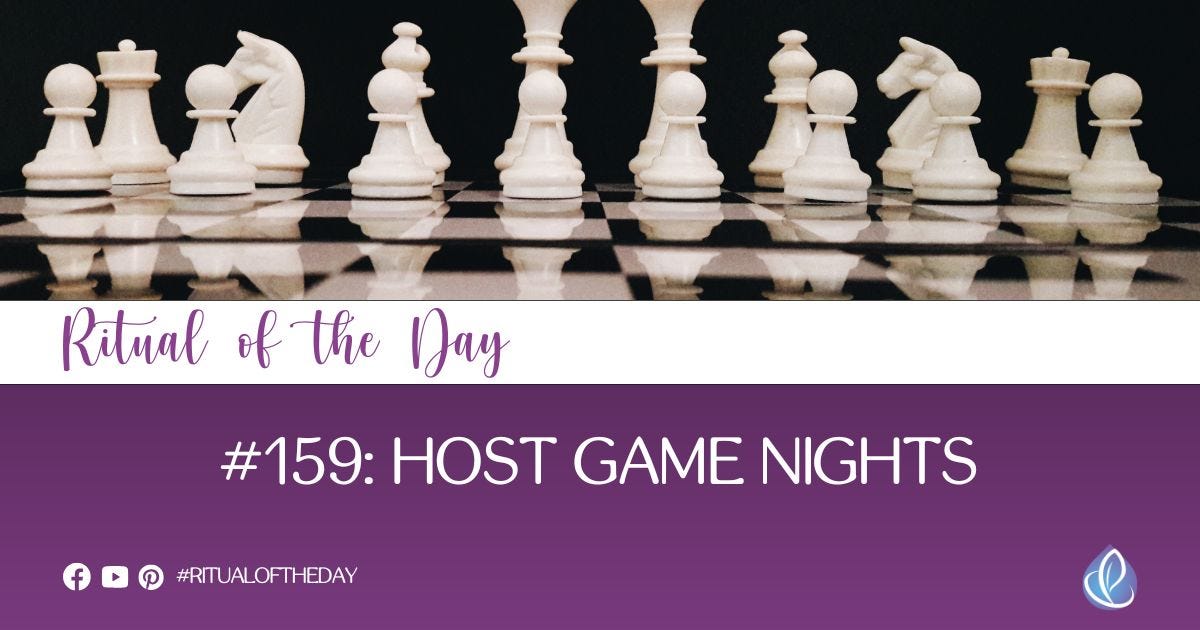In a world designed to keep us isolated and competing, there's something quietly radical about gathering people to play games. It's not just about entertainment—it's about creating spaces where genuine connection can happen, where hierarchies dissolve, and where community is built one roll of the dice at a time.
Ritual Breakdown: Building Revolutionary Spaces Through Play
Game nights seem simple on the surface: invite people over, provide snacks, play games. But there's a deeper magic at work here. When we play together, we create temporary autonomous zones where normal social rules don't apply. CEOs can lose to interns. Introverts can dominate conversations. The quiet ones reveal hidden strategic brilliance.
The key elements:
Safe space creation (physical and emotional)
Structured interaction (games provide the framework)
Natural relationship building (competition reveals character)
Joy as resistance (laughter undermines oppression)
Choose games that:
Enable rather than limit conversation
Allow people to join or leave easily
Don't require extensive explanation
Create natural alliance-building
Encourage both cooperation and competition
How to Fit in More of This: Making Space for Collective Joy
Start small. One evening a month. Two or three people. Build slowly. Let it grow organically. The goal isn't to host the biggest game night—it's to create sustainable spaces for connection.
Some practical considerations:
Keep snacks simple but abundant
Have backup games ready
Create clear start/end times
Allow for natural evolution
Document what works (and what doesn't)
Remember: every gathering is practice for building better communities. Pay attention to:
Who takes leadership roles
How conflicts are resolved
When energy shifts
Where connections form
Why people return (or don't)
Personal Notes: The Power of Playing Together
I've noticed something interesting in hosting regular game nights: they become microcosms of larger social dynamics. Watch closely and you'll see power structures form and dissolve, alliances build and break, and leadership emerge naturally. It's like practice for larger scale organization, all under the guise of "just playing games."
The most powerful moments often happen between games—in the snack breaks, the rule discussions, the post-game debriefs. That's where real connections form, where people share their stories, where communities start to coalesce.
Pro tip: Always have at least one cooperative game available. Sometimes the group needs to work together against the game itself. Sound familiar?
Final Thoughts: Games as Trojan Horses
There's a reason authoritarian regimes often crack down on gatherings—even innocent ones. They know that when people come together regularly, when they build trust and connection, when they practice working together and resolving conflicts... well, those skills transfer.
Every game night is practice for:
Group decision making
Resource allocation
Conflict resolution
Strategy development
Community building
Plus, it's really hard for power structures to maintain control over people who regularly gather to laugh together.
Want to start your own revolutionary game night?
Drop a 🎲 below and I'll send you my favorite games for building community (including some that technically aren't games at all).
Joy Ritual #159 from the Joy Rituals Database, reimagined for building community through play.
Remember: Sometimes the most revolutionary act is creating spaces where people can just be human together. Game nights aren't going to overthrow systems of oppression overnight, but they might just help us practice the skills we need to build something better.
Want more joy rituals that subtly undermine capitalism while building stronger communities? Join us in the Network.





